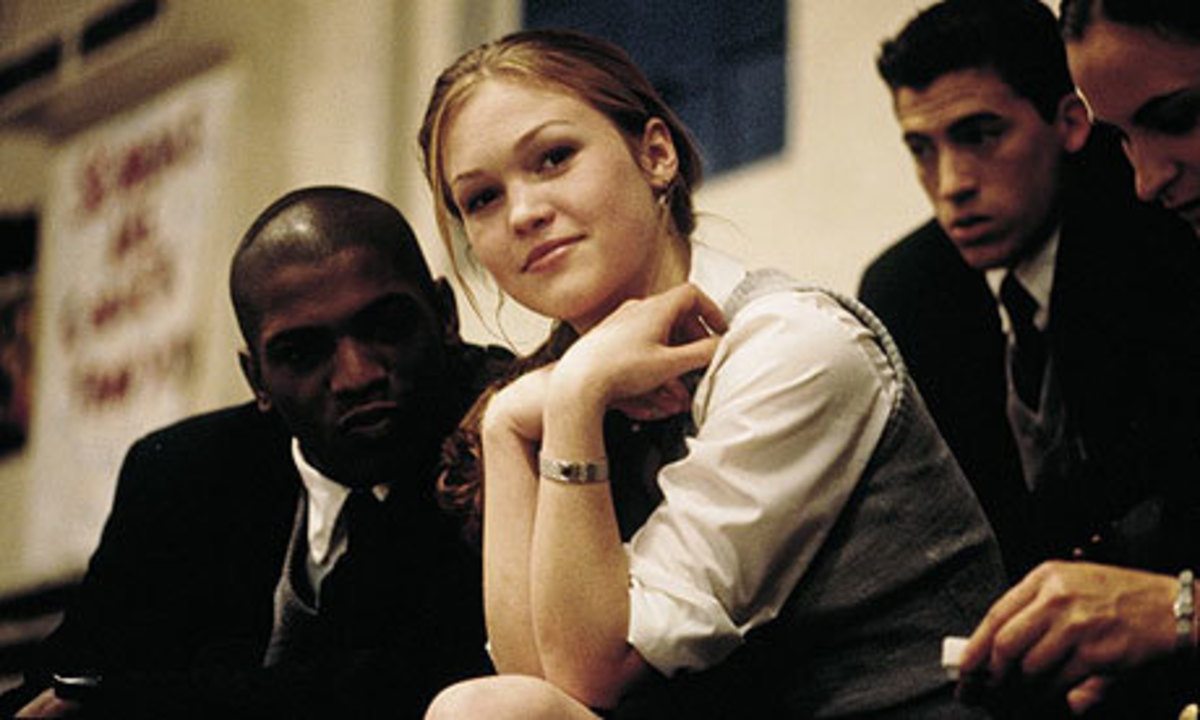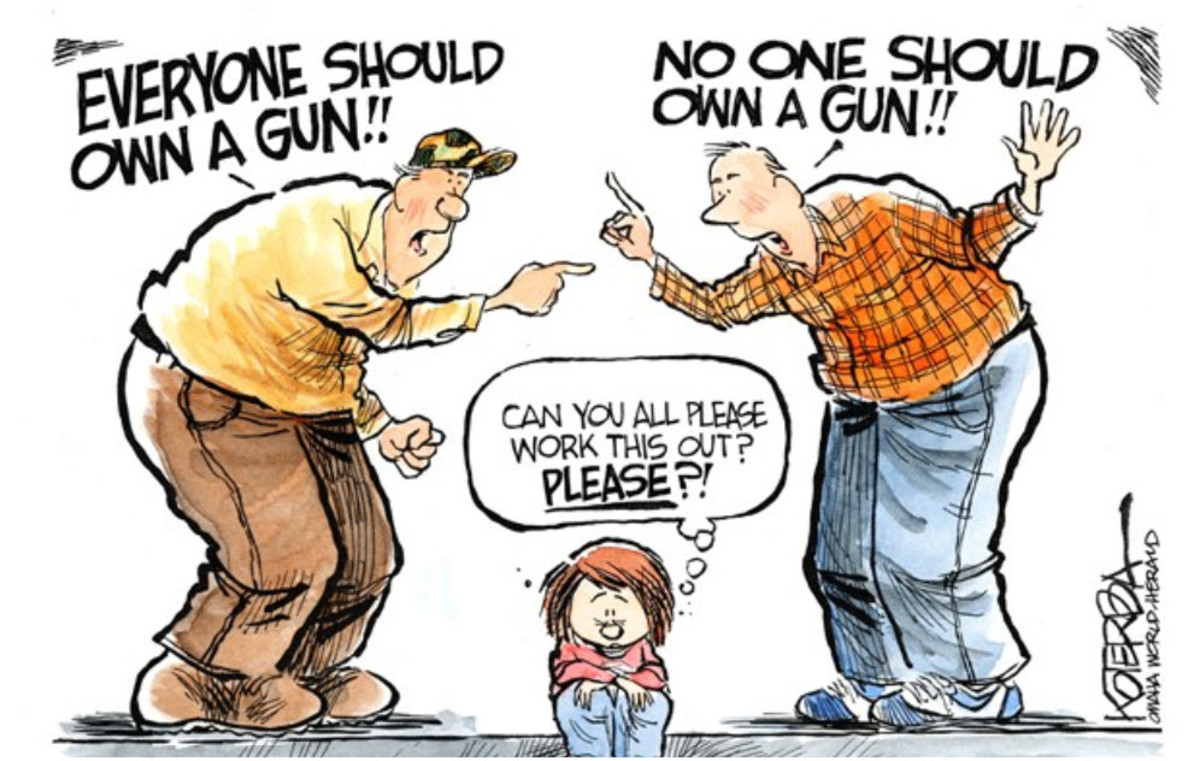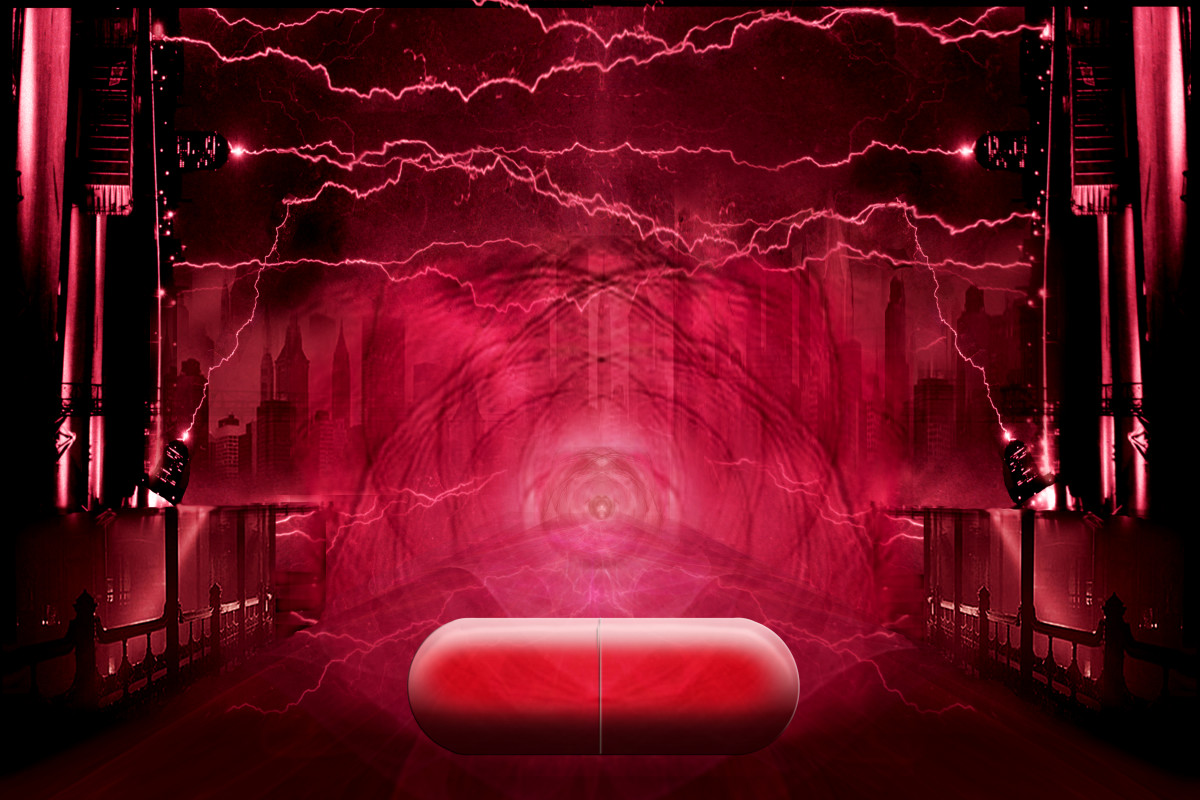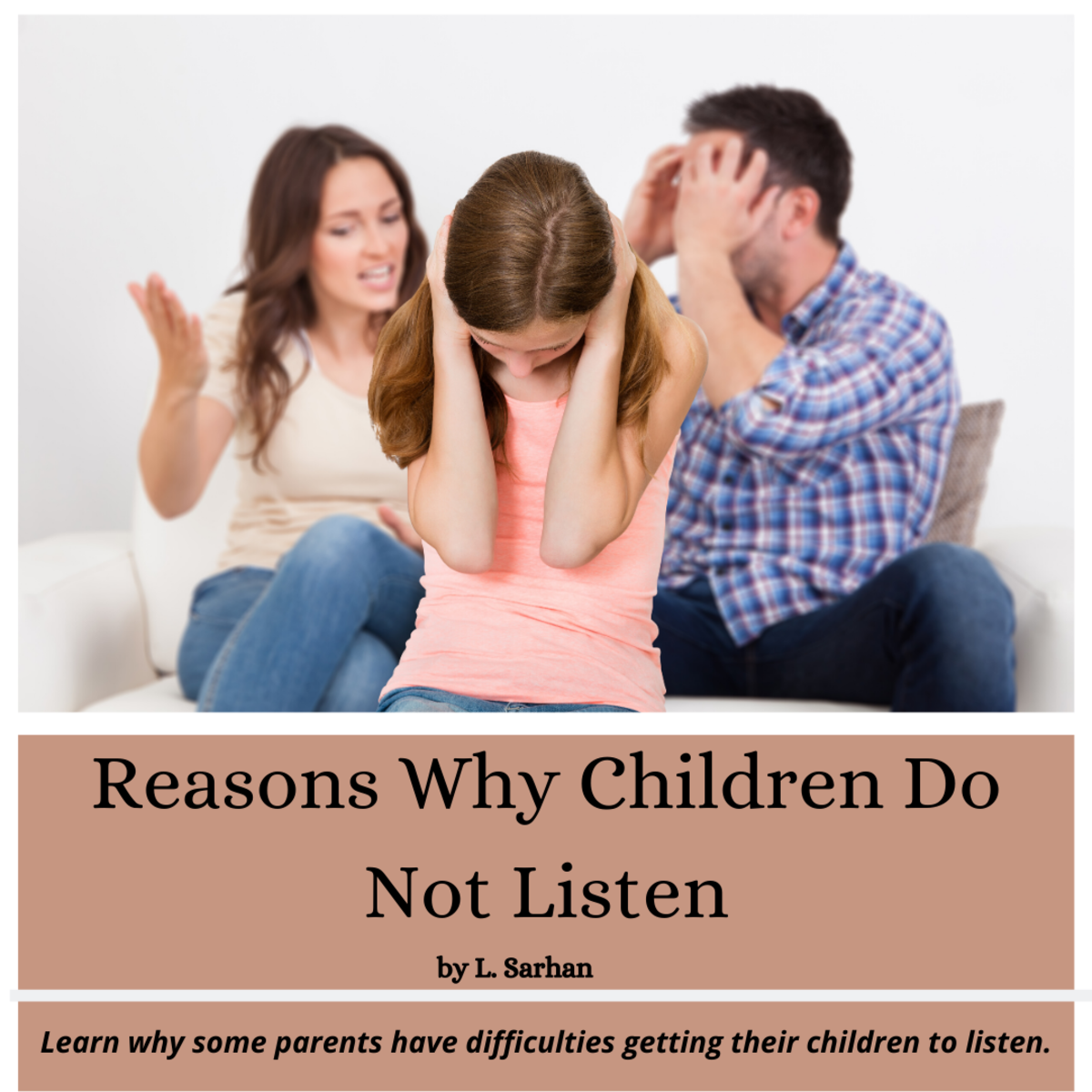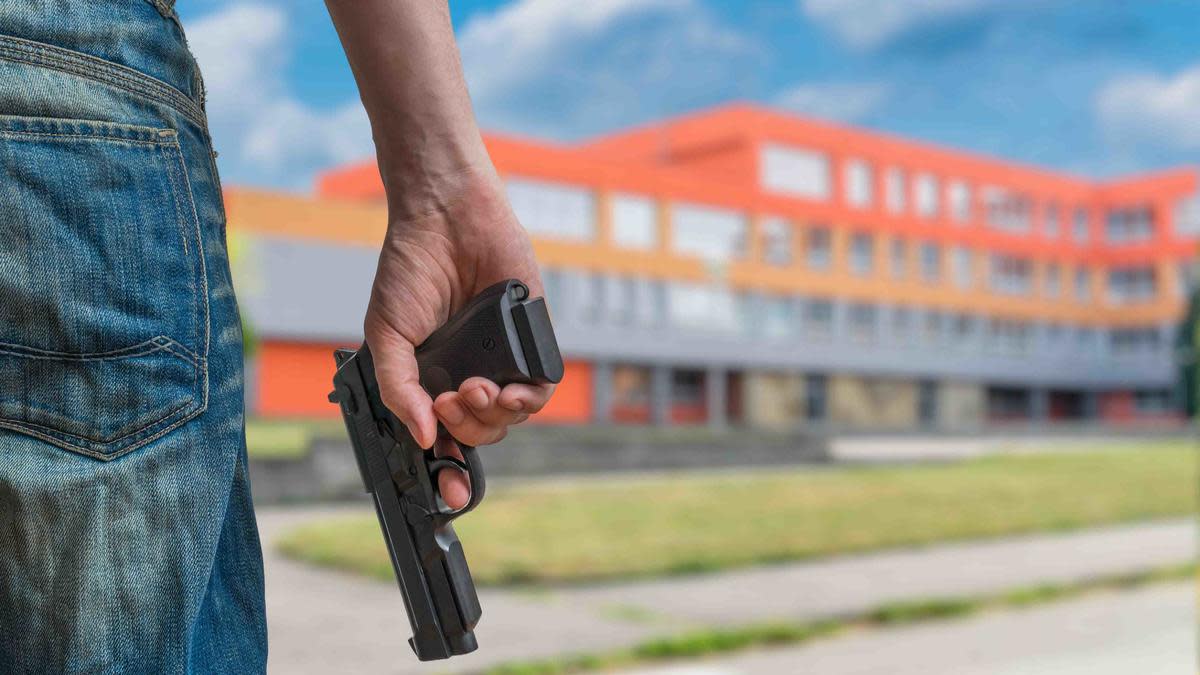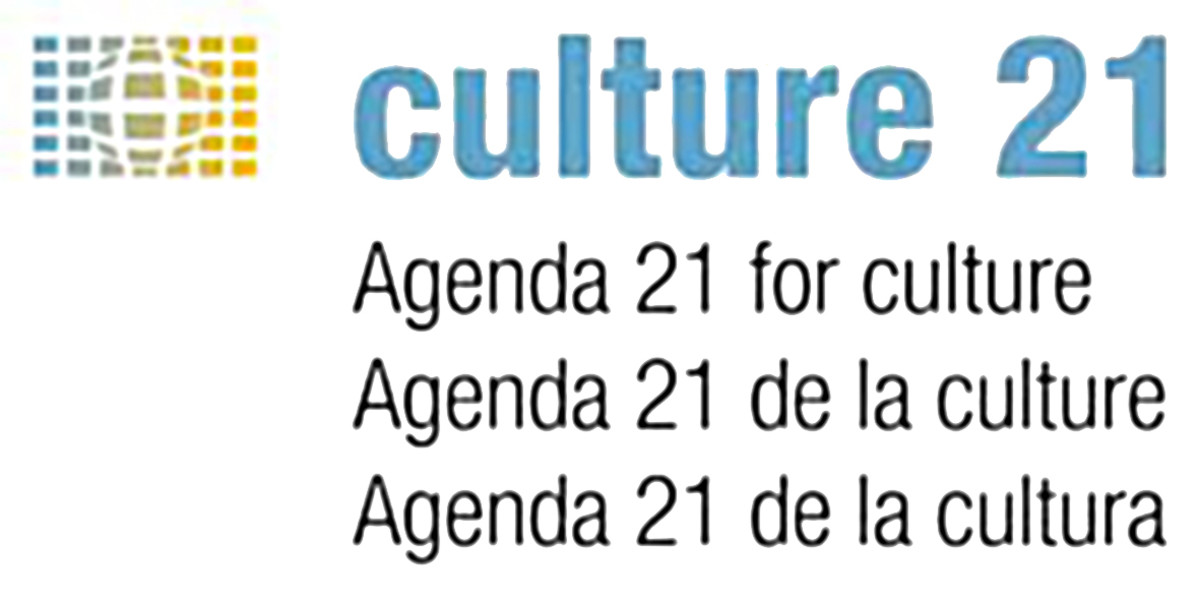The Argument For Preventing School Shootings

So There's Been Another School Shooting...
What do we do now?
We flood social media with status updates about how horrible it is and how we send our thoughts and prayers to those affected. Then, we either add to the post, or create another one a little later on about why it keeps happening, and who, or what, is the culprit and what we need to do to put an end to it.
This must be the anger stage.
People choosing one or two theories that make sense to them as to why these horrible shootings take place. And it's always just one or two choices people cling to; either they're blaming guns and the accessibility to them, or mental illness, or the perpetrators upbringing (the parents are at fault), or society as a whole is at fault because violence is prevalent in music, television, and movies. I even saw a video posted on social media by an angry citizen blaming the kids at this last school shooting (Florida) for not reporting that the shooter exhibited psychopathic tendencies.
Everyone has an opinion on the subject of causation, primarily based on which political party they identify with. All of them have justifiable points, to one degree or another, but are any of these theories truly reasonable or even close to being the real cause of why children kill? Is there any solution to this continuing problem of mass violence in our schools? Is there an underlying pattern that can explain why children feel driven to kill?
Upon researching this article I found some very interesting information about causation and was frankly surprised by how much the researchers actually know about why children kill. Knowing why it happens is the key to stopping it, yet it continues and seems to even flourish. What gives?
How Monsters Are Made
Let's assume for the sake of argument that children who kill are taught, not born, to be wicked. In a New York Times article dated October 11th, 1983, it is argued that children who kill typically come from families where they witness, or are exposed to violence. The article goes on to say "...these children do not come from typical, American households." Some of these children are nonempathetic, meaning they're unable to put themselves in the shoes of another and therefore have no feelings of guilt, remorse or sympathy for their victims. Another group identified as 'Sexual Identity Conflict Murderers' are boys who were teased as being "sissies", and bullied as such. The households these children come from are described as having a dominant mother and passive father (http://www.nytimes.com/1983/10/11/science/children-who-kill-personality-patterns-are-identified.html?pagewanted=2).
Some researchers in the above article suggest that the most significant cause of violence in children is due to family and/or social influences, but there are also biological factors including a slow autonomic-nervous-system response; electroencephalogram abnormalities such as defects in certain areas of the brain that have to do with self-control and reasoning. It is suggested that these abnormalities are not genetic in nature, but are caused by environmental damage or possible brain injuries. However, if the child with the impairments are raised in a stable home environment, he/she is less likely to become violent, regardless of any mental disorders.
In another article that was very well researched and good at breaking down the causes of violence in children, the author explains; "...I have watched as the concept of “respect” has evolved in the youth culture. It is heard in the words of kids who say, “I respect them if they respect me” and those who explain their outbursts by saying, “He didn’t give me my respect.” I have come to view this as a particularly virulent and dangerous attitude, the idea that “respect” is a possession, an entitlement or a conditional offering. Sometimes teenagers kill while defending a sense of honor that they never earned or deserved." (http://www.everydaypsychology.com/2006/11/why-do-kids-commit-murder.html#.Woke9IWcHIU)
The latter article also explains how the young are prone to more dangerous behaviors. According to the research, adolescents are more likely to behave dangerously not because they view themselves as impervious to harm, but because of immaturity, poor judgement, and being reactionary. They may even react without full comprehension or thought of the consequences of their actions.
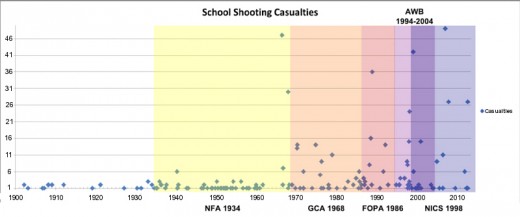
So Who's to Blame?
First of all, the child who perpetrates the crime is at fault, first and primarily, of course. Let's never lose sight of that, regardless of whether the child was deranged, abused, disrespected, or came from a dysfunctional and twisted background. There's simply no reason for us to give any slack to the offender. This isn't to downplay the fact that these children were most likely failed in one way or another by the factors I listed in the above section. Whichever factors or combination of factors were involved, it will be different for each child. If bad parenting was involved, that may or may not be blamed. How many people can claim they experienced bad parenting and/or abuse in their childhood and they didn't become mass murderers. Now couple that bad parenting with a brain injury and maybe they would have.
Now let's take a look at the weapons chosen as a culprit in mass killings. Most school shootings have at least one gun involved; that's probably why they're called school shootings. Guns aren't super difficult to get, but neither is anything else. In fact it's easier to get the recipe and ingredients for making a bomb through the Internet, though a bomb would be less effective if the perpetrator was targeting any particular individual/s. Knives are also easier to get, but messier to use, and difficult to kill more than one person. The question is raised as to whether or not a particular individual would've committed an attack at all if they didn't have access to a gun?
The worst mass killing at a school by a perpetrator happened to have zero guns involved. It happened in 1927 in Michigan where 44 people were killed. The killer used bombs as his weapon.
There are dozens of examples of mass killings that didn't involve guns; some in the U.S., but mostly in countries that have stricter gun laws. There aren't a lot in the way of school shootings, however. Does this suggest that banning guns would prevent mass school killings? I don't think so, and this is why: It would be even easier and cheaper to obtain a gun if they were banned. Look at how easy it is for kids, or anyone for that matter, to get illegal drugs. Making something that's in high demand illegal is the best way to make it more accessible. The logical outcome of banning guns would be opening the door ever wider to a huge, criminal enterprise that would be arming criminals, and leaving law-abiding citizens without any substantial defense against them. Not to mention banning arms would be unconstitutional and the last thing we need is more Constitutional rights taken away from us.
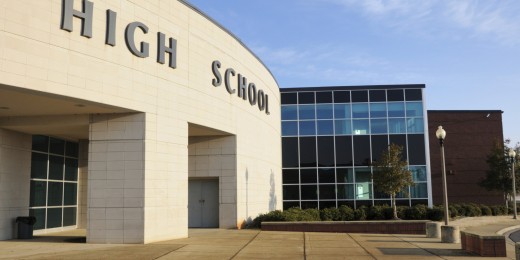
Every Problem is a Solution in Disguise
Now for the BIG question: Can we stop school shootings from ever happening again, and if so, how?
For one thing, we need to face the fact that there is no easy, magic bullet for solving this. We need to set more realistic goals, and get at the source of the problem before setting more long-term goals. I think we got to the source, so now what?
Banning guns simply wouldn't work, and turning our educators into gun-wielding vigilantes isn't the answer, either. Some people like firing guns, but some are just as eager to avoid it. We can't force that on anyone.
Putting metal detectors at every school entrance wouldn't necessarily work either because the shootings could just as easily occur on the grounds before the entrance, or a different type of weapon could be used altogether. Besides, do we really want our schools to look and feel even more like a prison than they already do?
A friend of mine recently told me about his nephew who got reported by his classmates for being creepy. Many of them suspected he might do something like a school shooting, and the school actually suspended him. I'm not sure if he's receiving any psychological evaluations, but I'm not entirely sure this is a good thing. Are we going to start "profiling" every kid that doesn't fit in at school as being a "postal" threat? What about that child's rights? Does he/she have even have any rights? What if being targeted in such a way is the last stamp needed to push the child over the edge and into perpetrating a mass murder? This is not a solution.
Maybe instead of doing all the above, children are equally given psyche evaluations. It would be a costly endeavor since highly trained psychologists would have to be employed, but no matter which way you look at this situation, it's going to cost something. that would be a good short-term goal. Long-term goals could include extending such evaluations to the parents, or anyone who's raising children. I don't know why this isn't something that's always been done. People are out there screwing up their kids in all sorts of ways, then releasing them into society to wreak havoc and chaos. Why hasn't this always been a societal concern?
Basic adulting classes should be implemented in every school in the country to train kids how to deal with stresses of all different kinds. Not to mention basic life-skills such as how to interact with other people, how to be polite, how to be considerate and appreciative of others, and most importantly, how they're not the center of the Universe, but a very small part of it. These classes should start in Kindergarten and be required throughout the child's school career. Since parents can't be relied upon to do these simple teachings, it's up to us; society, to make sure kids are learning it. The only way we can do that is by taking charge ourselves and changing the system. I know I'm not the first person to suggest these kinds of changes, but maybe I can help get them pushed into effect by bringing it up again. Perhaps we all can and get the idea moving by discussing it with others.
Please voice your opinion on this subject and/or take the poll located below. Do you have a better solution to prevent school massacres? The discussion is open!


